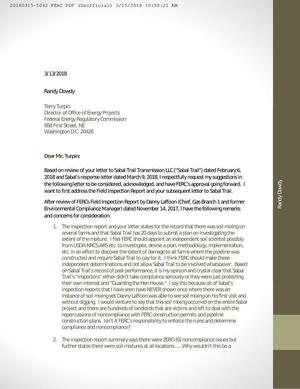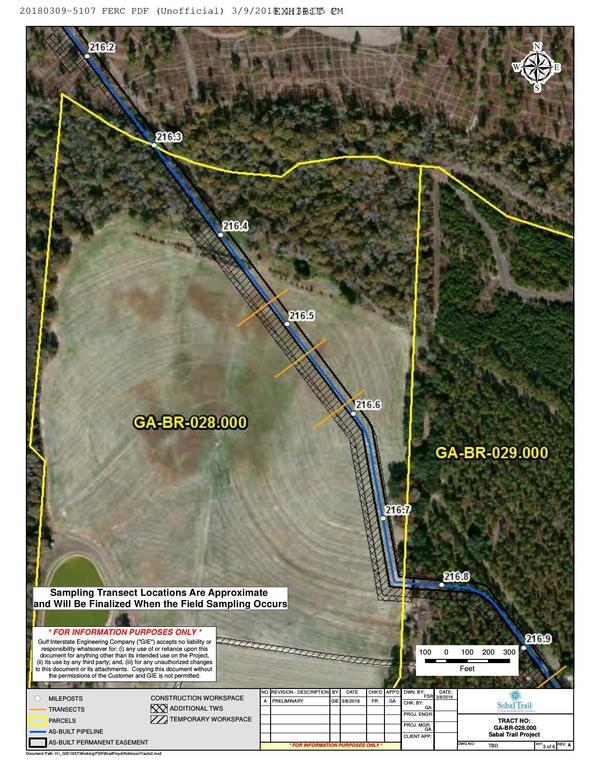A pair of ranchers report an epidemic of stillborn calves, four dead mother cows, equipment damaged by too-steep grades, invasive weeds planted as a “cover Crop” by Sabal Trail and now spreading through seeds in cow manure, hay unusable, and:
At this point we are requesting help to repair the land that was never restored. The grade and the grasses require a farmer to repair not a Sable trails employee can repair
We have waited until now for you to not answer or get back with us and still our ranch issues are growing while you look into your options.
Maybe FERC didn’t want the public to see this. FERC’s elibrary shows Accession Number 20180716-5129, Report / Form of alexander cochrane under CP15-17,, but attempts to retrieve the files listed get:
The requested URL was rejected. Please consult with your administrator.
Your support ID is: 7429593144853677013
As so often, FERC’s backup elibrary Continue reading


![[Dennis Price explains, 13:50:12, 30.57871, -83.05231]](https://www.wwals.net/pictures/2018-01-27--hike-dead-river-sink/20180127_135013.jpg)







